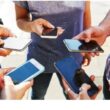911 community, others provide input in FCC proceeding on non-service-initialized (NSI) devices
By Stephanie Toone
Reply comments to the FCC’s proposal to sunset the rules that allow non-service-initialized (NSI) devices to call 911 were filed by Monday’s deadline, with groups from the emergency-calling community taking varying stances on whether to phase out the 911 rules regarding the devices.
The commission proposed altering the E-911 rules based on concerns of increased fraudulent and inadvertent calls from NSI handsets, which are not connected to a carrier service and are not able to receive callbacks from public-safety answering points (PSAPS).
The rules were created to retain the NSI cell phones’ abilities to call 911, such as in the case of domestic-violence victims. National domestic-violence groups had distributed the cell phones to victims that lacked other options to call in the case of an emergency.
With mobile devices now almost ubiquitous, the need for NSI phones has decreased significantly. Those that do utilize the devices—for instance, children who have been given hand-me-down phones—often occupy the time and attention of 911 communications staff with non-emergency calls.
For that reason, National Emergency Number Association (NENA) supported phasing out the requirement for 911 to connect with NSIs in its reply comment to the FCC.
“As the Commission recognized in its Notice, myriad states and localities have filed detailed analyses of 911 call traffic originated from these devices,” according to NENA’s filed statement. “While a few filings indicate that a tiny fraction of calls from NSI devices have been indicative of actual emergencies, the record clearly demonstrates that, on balance, NSI calling does more harm than good. NENA therefore strongly reiterates our contention, expressed repeatedly in this docket, that the NSI rules must be phased out.”
The National Network to End Domestic Violence contended in its reply comments that the necessity of NSIs still exists, citing an NNEDV survey that found 83% of victim service providers still provide the devices to victims for safety planning purposes. The survey also uncovered that 45% of those agencies believe their clients utilize NSIs for emergency calls.
“In many cases, abusers will destroy victim’s phones, discontinue paying the phone bill or refuse to replenish minutes, or monitor their phones with spyware—monitoring software—in an effort to control and isolate the victim and prevent them from reaching out for help,” the NNEDV reply comment states.
“NSI devices offer survivors another option. One Illinois advocate explained, ‘I give the phones out and suggest that they keep the phone as a backup plan, in case the abuser takes their regular cell phone.’ Survivors can hide more than one NSI device from the abuser, and because it is an NSI device, they don’t have to worry about paying a service contract.”
Providing consumer-education campaigns and making PSAPs responsible for filtering nuisance 911 calls via call blocking or customer premises equipment would be the best alternative to halting NSI calls, CTIA—a trade association for commercial wireless carriers—states in its reply comments.
“Today, there continue to be millions of legitimate calls made to 911 from NSI handsets, as well as 911 calls from service-initialized handsets that temporarily appear as NSI,” CTIA states in its reply comment. “A sunset of the all-calls rule would cause significant confusion and uncertainty for wireless callers. Thus, the Commission should maintain the all calls rule and ensure that these callers can reliably reach Public Safety Answering Points (“PSAPs”).”
The Association of Public-Safety Communications Officials (APCO) reply comments support a yearlong transition and educational campaign that would lead to the sunset of the NSI rule. The access and options consumers have to traceable, affordable phones make the requirement for NSI-to-911 calls requirement obsolete.
“Public-safety telecommunicators must take every call seriously,” the APCO reply comment states. “The false nature of the vast majority of NSI calls strains the limited resources of the emergency-response community, especially because NSI calls aren’t delivered with location information or a callback capability. This potentially delays a response to legitimate emergencies, placing the public in greater danger.”















